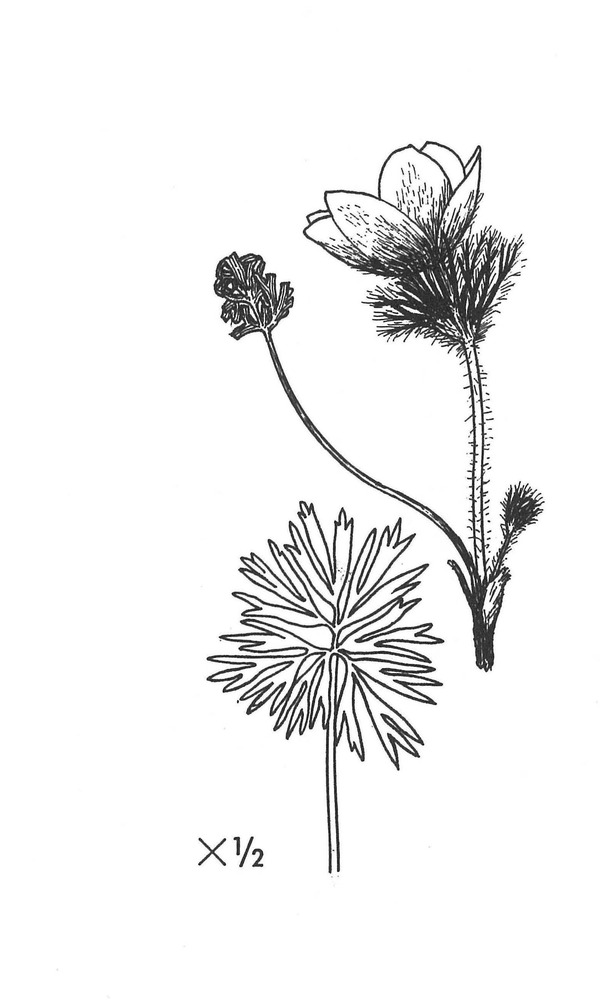| Pulsatilla patens subsp. multifida (Pritz.) Zamels | |||
| |||
| Family | Ranunculaceae — APG family: Ranunculaceae | ||
| Synonyms | Anemone wolfgangiana Bess., Anemone multifida (Pritz.) Juz., Pulsatilla hirsutissima Britt., Anemone ludoviciana Heller, Anemone patens var. nuttalliana Gray, Anemone patens subsp. multifida, Anemone patens var. wolfgangiana (Bess. ex W. D. J. Koch) Trautv. & Mey., Anemone patens var. multifida Pritz. | ||
| Common name | pasqueflower | ||
| Description | Silky-villous; stems from vertical, dark-brown, many-headed caudex; basal leaves developing after floration, ternately divided, the divisions 2- or 3-parted into nu- merous narrow segments; the very villous involucrum deeply cleft into narrow, lan- ceolate, acute lobes; sepals blue or purple; staminodia glandlike; fruit plumose when ripe. | ||
| Ecology | Dry, sandy soil. P. patens described from “Tobolsko Sibiriae, Lusatia inferiore” (Lausitz) ; subsp. multifida from Siberia. | ||
| Taxonomy notes | Broken line on circumpolar map indicates range of other subspecies. |
This is a digital representation of Eric Hultén’s ‘Flora of Alaska and Neighboring Territories: A Manual of the Vascular Plants’, which was published by Stanford University Press in 1968. The book was digitized by C. Webb (at UAMN) as part of the Flora of Alaska project, with funding by the US NSF (Grant 1759964 to Ickert-Bond & Webb), and with permission of Stanford University Press. Data and images © 1968 Board of Trustees of the Leland Stanford Jr. Univ. Usage licence: Creative Commons BY-NC-SA 4.0. NB: You may find OCR errors; please refer to the hard-copy if in doubt.
